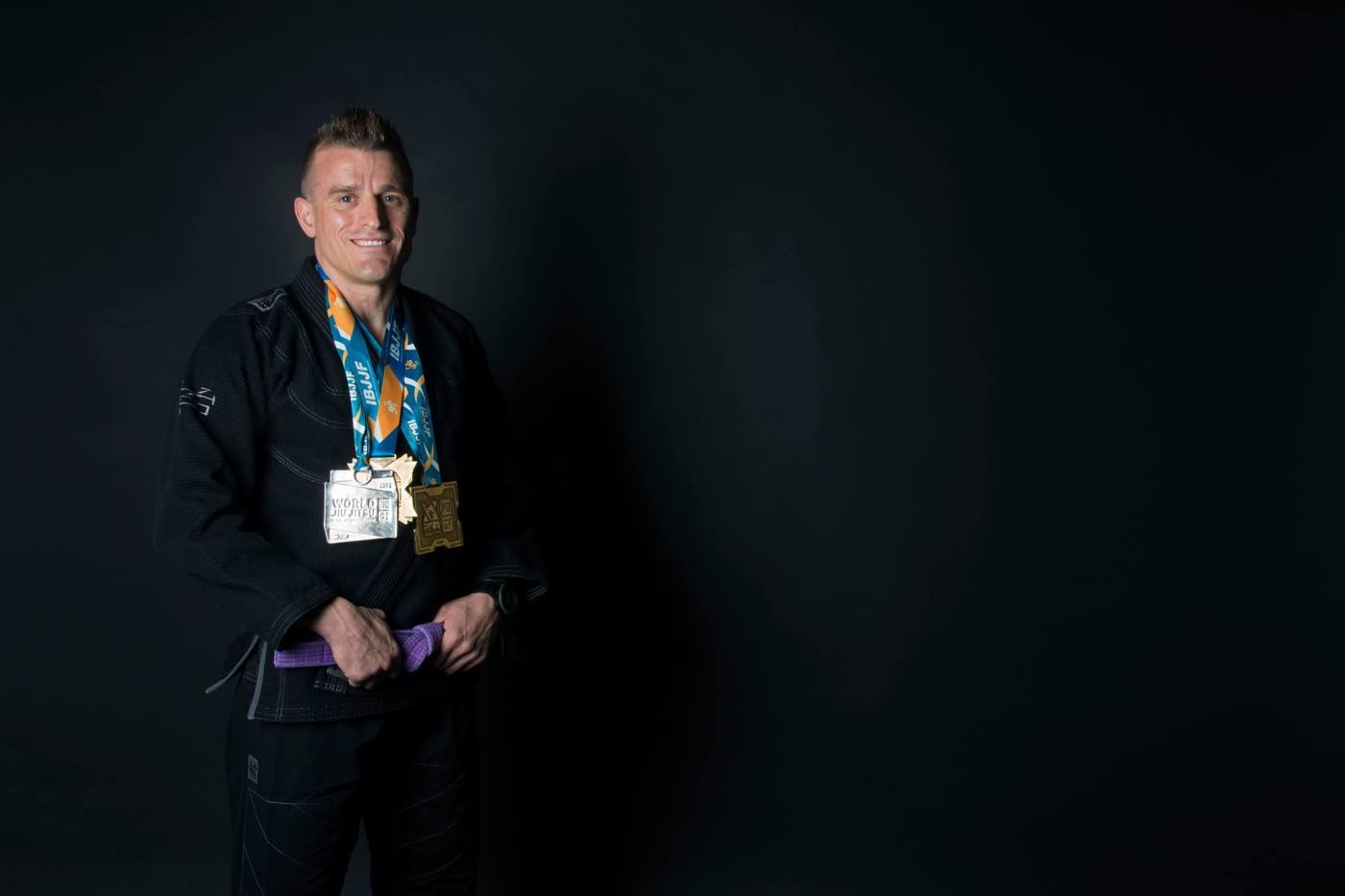Many Servicemembers join the military ready to go to war. Others face their toughest battles when they leave the service. Robert Consulmagno, a Marine Corps Veteran, has been battling with more than some can handle since he was a child. At the age of 43, he faces physical ailments, bipolar disorder, and PTSD.
His mental health issues are rooted in his childhood as he spent many years watching his mother get abused by his stepfather and at times,taking that abuse himself.
“I remember walking up the stairs, my step father is there, he’s in his boxers and all I remember is black,” Consulmagno said. “Got kicked down the stairs. Being 6 years old I went down the whole stairs. I was in a full body cast.”
Unable to cope and find stability on his own, he joined the military. “I’ve seen a lot of horror,” said Consulmagno. “Joining the Marine Corps was my hope to escape from that.”
When he joined, he struggled to find his place in the Corps. He was constantly in trouble and was unable to get along with his peers. He was kicked out of Avionics School, MSG school and finally found a place as a 3051 Warehouse Clerk.
“I didn’t know why I was acting like that. I wanted to be a Marine, I loved being a Marine,” he said.
When he left the military in 1996, he became complacent and destructive. His condition had not yet been diagnosed and he wasn’t sure how to handle what he was experiencing. He struggled to keep a job or a stable location.
Medical professionals suggested that he might have bipolar disorder. He didn’t believe it when he first heard it. He joked about the idea thinking the symptoms sounded like most people he knew. But when he started to research the condition on his own, he realized it was true. Consulmagno was finally diagnosed with bipolar disorder in 2007.
When he first left the Marine Corps, his initial disability claim put him at 10 percent. Each time he revisited the VA and was diagnosed with additional ailments and conditions, that number increased.
“I blew all of my back pay traveling to Costa Rica, Thailand, everywhere,” Cozmo said. “That’s what Bipolar does. You don’t think about the ramifications.”
![Image-1[2]](https://news.va.gov/wp-content/uploads/sites/3/2016/05/Image-12-350x232.jpg)
He is now a purple belt ranked 2nd at this weight class, training at Atos West Chester, but fighting his opponents is only part of his personal fight with himself. Off the canvas, he’s fighting two battles against PTSD and bipolar disorder. He turns to the VA to get what jiu-jitsu can’t give him.
“You can’t really fix it. There’s no cure for bi-polar. Sometimes I may have done something where it may be too late. I don’t see myself doing wrong. I’m not cognitive of it. One minute you feel like Superman and euphoric, three minutes later you want to kill yourself.”
Consulmagno attends Victor J. Saracini Community Based Outpatient Center in Horsham, Pennsylvania. “I try to go as much as I can,” Consulmagno said. About 90 percent of the time he uses the VA for psychiatric care. Since he does not use traditional medication, he likes to be frequently monitored by his doctor.
Training in martial arts is his outlet. It’s how he exerts the energy and anxiety brought by his disorders. It helps him harness and channel the angst, while the VA nurtures him and helps him stay ahead of his condition. “These people understand. Going to the VA I feel like I have a family there that understands is waiting for me,” he said. “It’s a good feeling.”
Robert still experiences manic episodes. He wakes up with excessive energy and racing thoughts. “You know everyone is sleeping and it reminds me that I’m alone,” he said.
Cozmo is learning how to avoid episodes from his disorders. He finds that with PTSD, he can identify and avoid triggers. Bipolar disorder is harder for him to manage. “Sometimes you don’t really notice it coming on because you have it,” Cozmo said.
Robert hopes sharing his story and opening up a dialogue with others can help others feel comfortable with their condition.
“I just want to die knowing I’m leaving some sort of legacy behind.”
—–
Video produced by Ben Pekkanen
Topics in this story
More Stories
Summer Sports Clinic is a rehabilitative and educational sporting event for eligible Veterans with a range of disabilities.
Report examines the input of over 7,000 women Veterans: They are happier with VA health care than ever before.
Veterans and caregivers, you can help shape the future eligibility requirements for the VA Caregiver Support program.







I have Bypolar one. good story. It helps to know that your not alone with your every day struggles.
0351 Warehouse Clerk??? Should have done more research before you posted this article. That’s not a real MOS.
Hey Timothy, thanks for pointing out the error. I’ve corrected it to 3051 Warehouse Clerk.